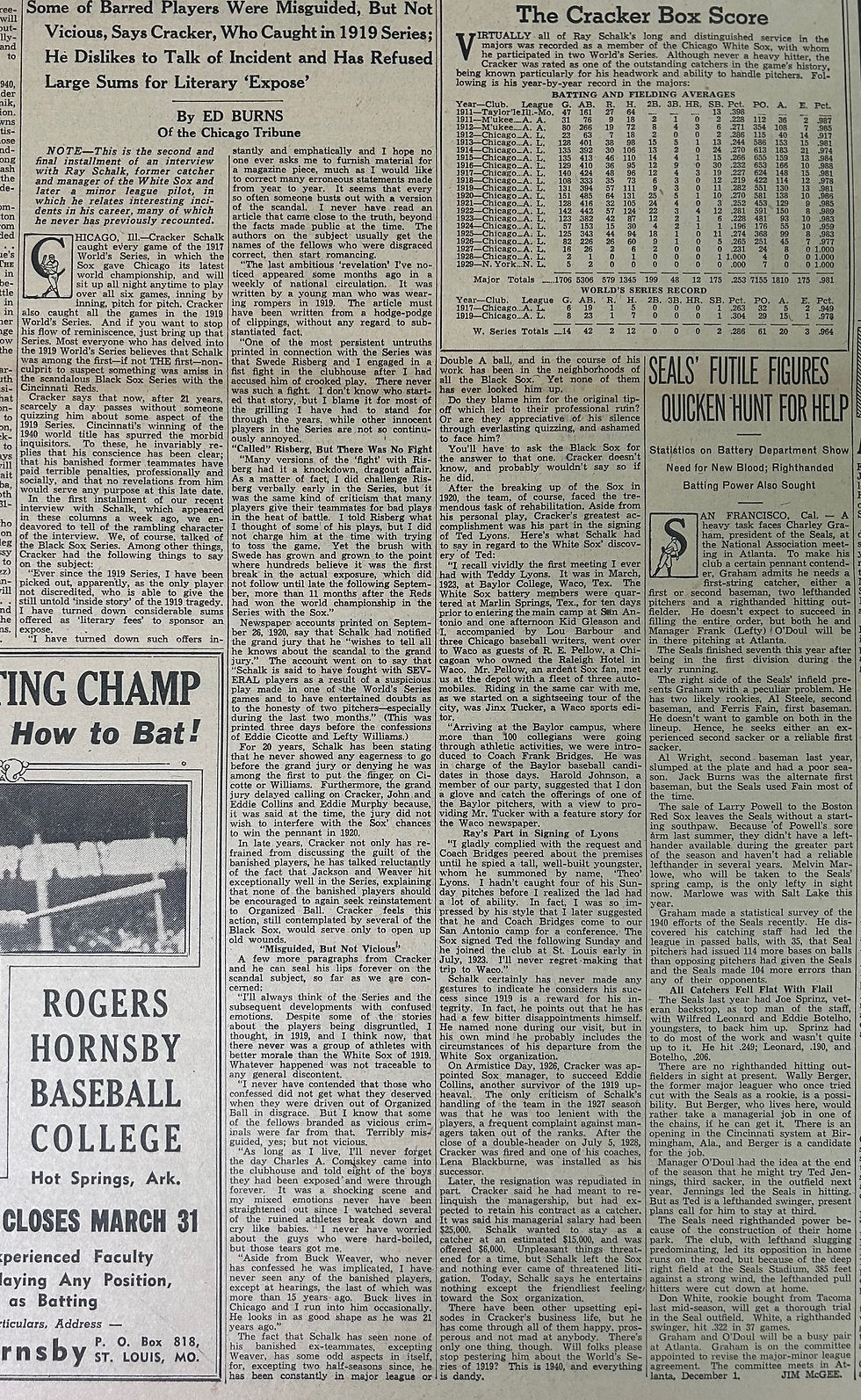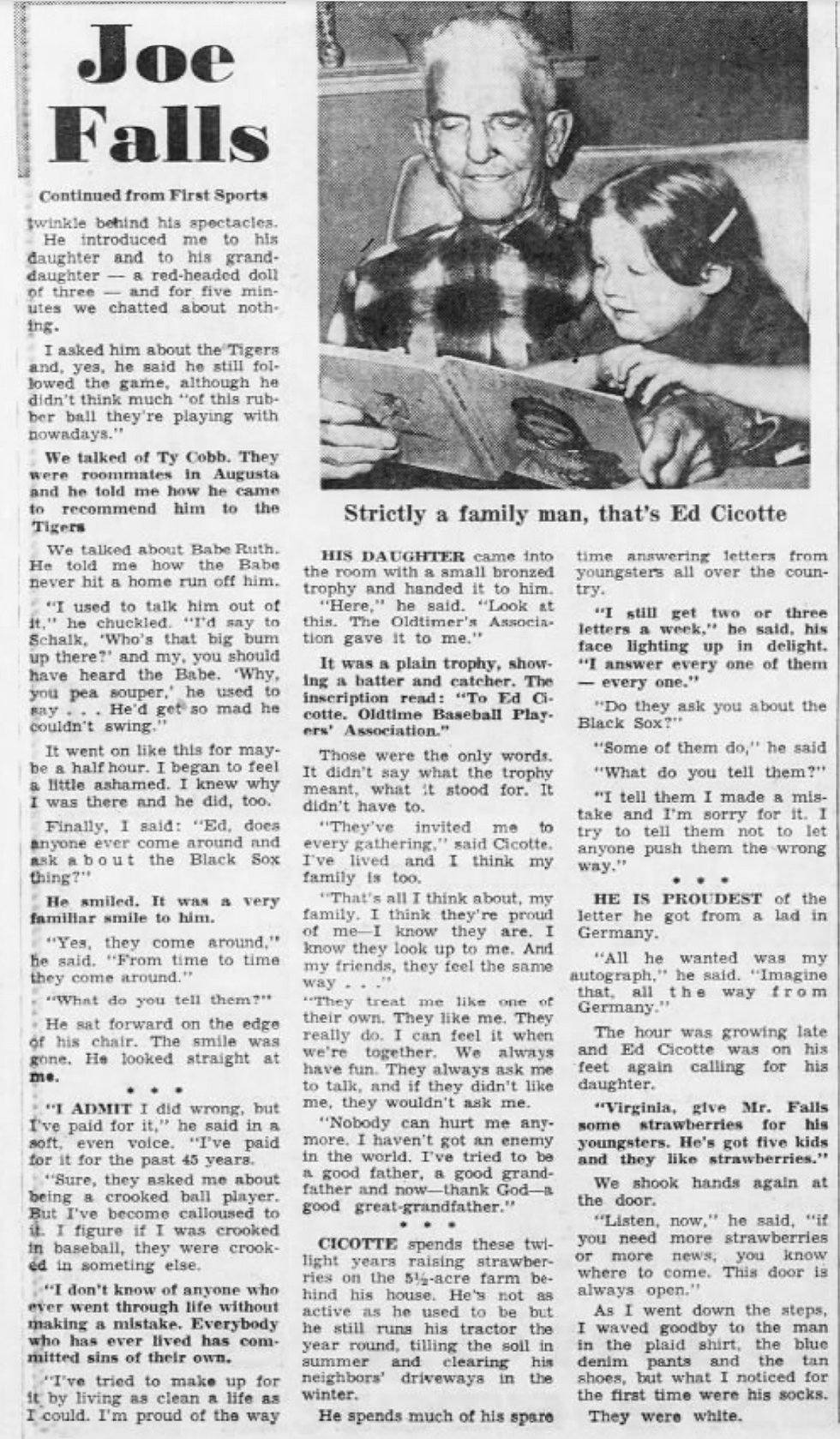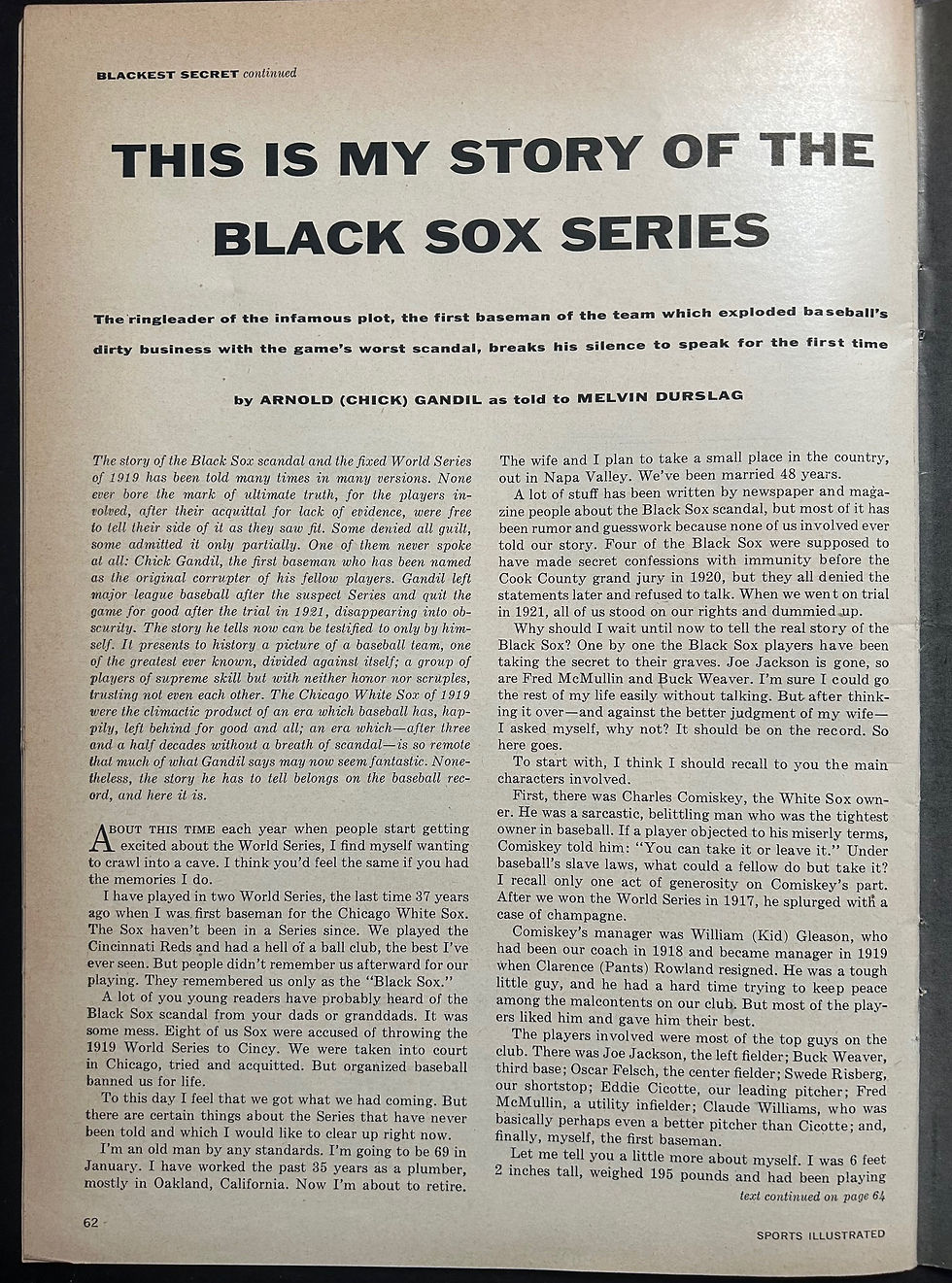The Legend of Shoeless Joe Jackson gets new life
- Mark Potash
- May 15, 2025
- 3 min read
Pete Rose was the focus of baseball commissioner Rob Manfred's edict that a lifetime ban from baseball ended when that player died. But former White Sox star "Shoeless" Joe Jackson will also be a beneficiary as a Hall of Fame- worthy player whose career — and story — likely will be re-examined in the aftermath. Jackson died at 64 in 1951.
(Some day they'll hopefully get to White Sox infielder Buck Weaver — maybe not for the Hall of Fame, but for recognition as an overlooked player even in his time and certainly since the Black Sox scandal. He's like "The Big Bopper," J.P. Richardson of the Buddy Holly tragedy — the only celebrity victim Hollywood hasn't done a movie about.)
My good friend Jon Greenberg talked to two Jackson nephews — both named Joe Jackson — for this story in The Athletic, which also re-visited the Shoeless Joe story and Jackson's involvement in the 1919 Black Sox scandal. It's a story that has been told or referenced many times over the years, with varying degrees of accuracy, but never gets old — maybe because of the varying degrees of accuracy. Every re-telling seems to have a little different spin on the story.
(A lesser-known prelude to Jackson's involvement in the Black Sox scandal: The previous year he was criticized publicly for leaving the White Sox to avoid being drafted into World War I. He left the Sox in May of 1918 to work at a shipbuilding company after being classified 1A by the draft board. The new job exempted him from the draft as an employee for a war industry. That's why Jackson played only 17 games — hitting .354 in 65 at-bats — in 1918.)
The Black Sox scandal is a fascinating tale and I can't read enough about it — especially accounts from those who were connected to it. Greenberg's story in The Athletic referred to a 1949 Sport magazine story, "This is The Truth!" in which Jackson expressed no regret and no bitterness or resentment for being banned from baseball.
Most of those connected to the Black Sox scandal have been reticent to talk about it, but there were a few stories over the years — almost all of them many years later. But they are always of great interest. Jackson talked to Carter "Scoop" Latimer of his hometown Greenville (S.C. News) for a story in The Sporting News in 1942:




The Sporting News, back in its glory days as "The Base Ball Paper of the World," checked in on other players connected to the series, including pitcher Dickie Kerr and catcher Ray Schalk, who were not involved in the plot to throw the 1919 World Series.

The Sporting News story in 1937 on former White Sox pitcher Dicky Kerr, who pitched in the 1919 World Series but was not involved in the plot to lose it



Here is an interesting take from a non-White Sox player, Reds first baseman Hal Chase (a former Sox player), who was blackballed from baseball in 1920 amid accusations of gambling on baseball and actively throwing games. In this 1941 story in The Sporting News, Chase expresses regret that he did not tell authorities about the plot after learning of it from Bill "Sleepy" Burns.


This is a story about Black Sox pitcher Ed Cicotte that I remember reading in Baseball Digest, but was originally published in the Detroit Free Press, by columnist Joe Falls.


And here's one more, on White Sox first baseman Chick Gandil, the purported ringleader, in Sports Illustrated in 1956.










Comments